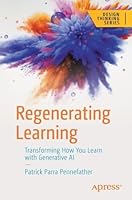
Mastering openFrameworks: Creative Coding Demystified
- Length: 364 pages
- Edition: 1
- Language: English
- Publisher: Packt Publishing
- Publication Date: 2013-09-23
- ISBN-10: 1849518041
- ISBN-13: 9781849518048
- Sales Rank: #2416422 (See Top 100 Books)
A practical guide to creating audiovisual interactive projects with low-level data processing using openFrameworks
- Create cutting edge audio-visual interactive projects, interactive installations, and sound art projects with ease
- Unleash the power of low-level data processing methods using C++ and shaders
- Make use of the next generation technologies and techniques in your projects involving OpenCV, Microsoft Kinect, and so on
In Detail
openFrameworks is a powerful programming toolkit and library designed to assist the creative process through simplicity and intuitiveness. It’s a very handy software library written in C++ to reduce the software development process, helping you kick-start creative coding. This tutorial presents key areas in a clear and practical manner with interesting examples to begin building your own visually impactful and interactive openFrameworks projects.
“Mastering OpenFrameworks: Creative Coding Demystified” is a great way to learn to develop stunning and interactive applications, all using openFrameworks. This book presents key development techniques and practical examples to gain inspiration for your future projects and take your creativity to the next level. This book will unlock secrets to program visually impactful and interactive openFrameworks projects, like never before.
“Mastering openFrameworks: Creative Coding Demystified” provides a complete introduction to openFrameworks, including installation, core capabilities, and addons. Advanced topics like shaders, computer vision, and depth cameras are also covered.
We start off by discussing the basic topics such as image and video loading, rendering and processing, playing sound samples, and synthesizing new sounds. We then move on to cover 3D graphics, computer vision, and depth cameras. You will also learn a number of advanced topics such as video mapping, interactive floors and walls, video morphing, networking, and using geometry shaders.
You will learn everything you need to know in order to create your own projects; create projects of all levels, ranging from simple creative-code experiments, to big interactive systems consisting of a number of computers, depth cameras, and projectors.
What will you learn from this book
- Install openFrameworks in Windows, Mac OS X, and Linux
- Load images and videos from files, and learn rendering and low-level processing
- Learn to use sound samples, sound synthesizing, and how to record sounds from a microphone
- Work with 3D graphics, including shaders
- Extend your project with additional graphics, sound, networking, and computer vision functionality with the help of numerous openFrameworks addons
- Create distributed projects, which work on a several computers by synchronizing via OSC protocol
- Leverage computer vision basics, including optical flow, and perspective transformations
- Use depth cameras, like Microsoft Kinect, for creating interactive walls
Approach
Stuffed with practical examples, this book gives clear and effective instructions to build your own fun, stunning, and highly-interactive openFrameworks applications. Each chapter is focused on one topic and has a new theme to it.
Who this book is written for
If you are a visual artist, designer, or programmer interested in creative coding with openFrameworks then this book is for you. Basic knowledge of object-oriented programming, such as C++, Java, Python, and ActionScript 3, would be helpful.
Table of Contents
Chapter 1: openFrameworks Basics
Chapter 2: Drawing in 2D
Chapter 3: Building a Simple Particle System
Chapter 4: Images and Textures
Chapter 5: Working with Videos
Chapter 6: Working with Sounds
Chapter 7: Drawing in 3D
Chapter 8: Using Shaders
Chapter 9: Computer Vision with OpenCV
Chapter 10: Using Depth Cameras
Chapter 11: Networking
Appendix A: Working with Addons
Appendix B: Perlin Noise







